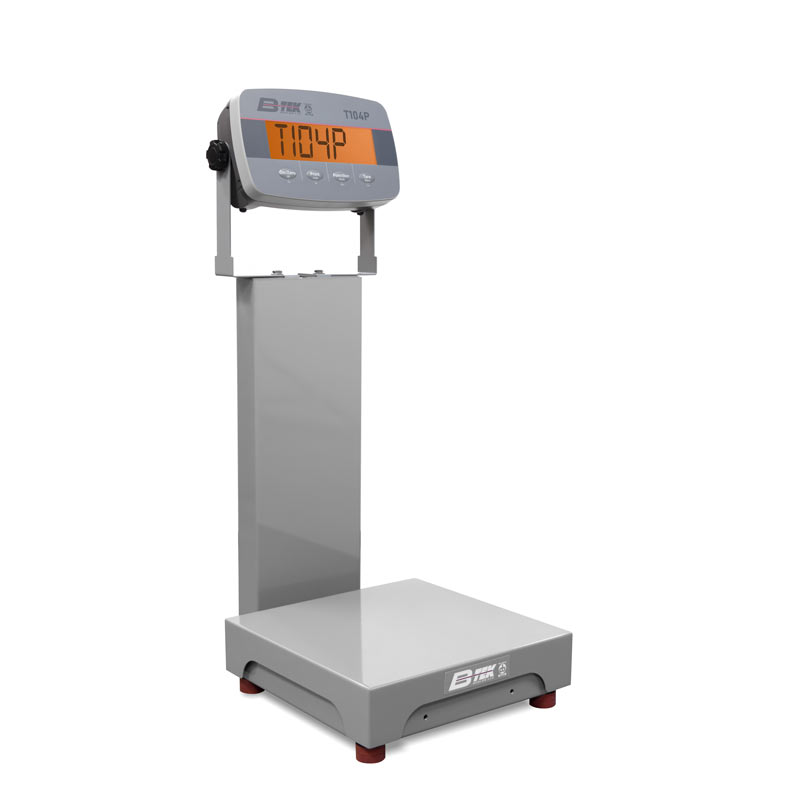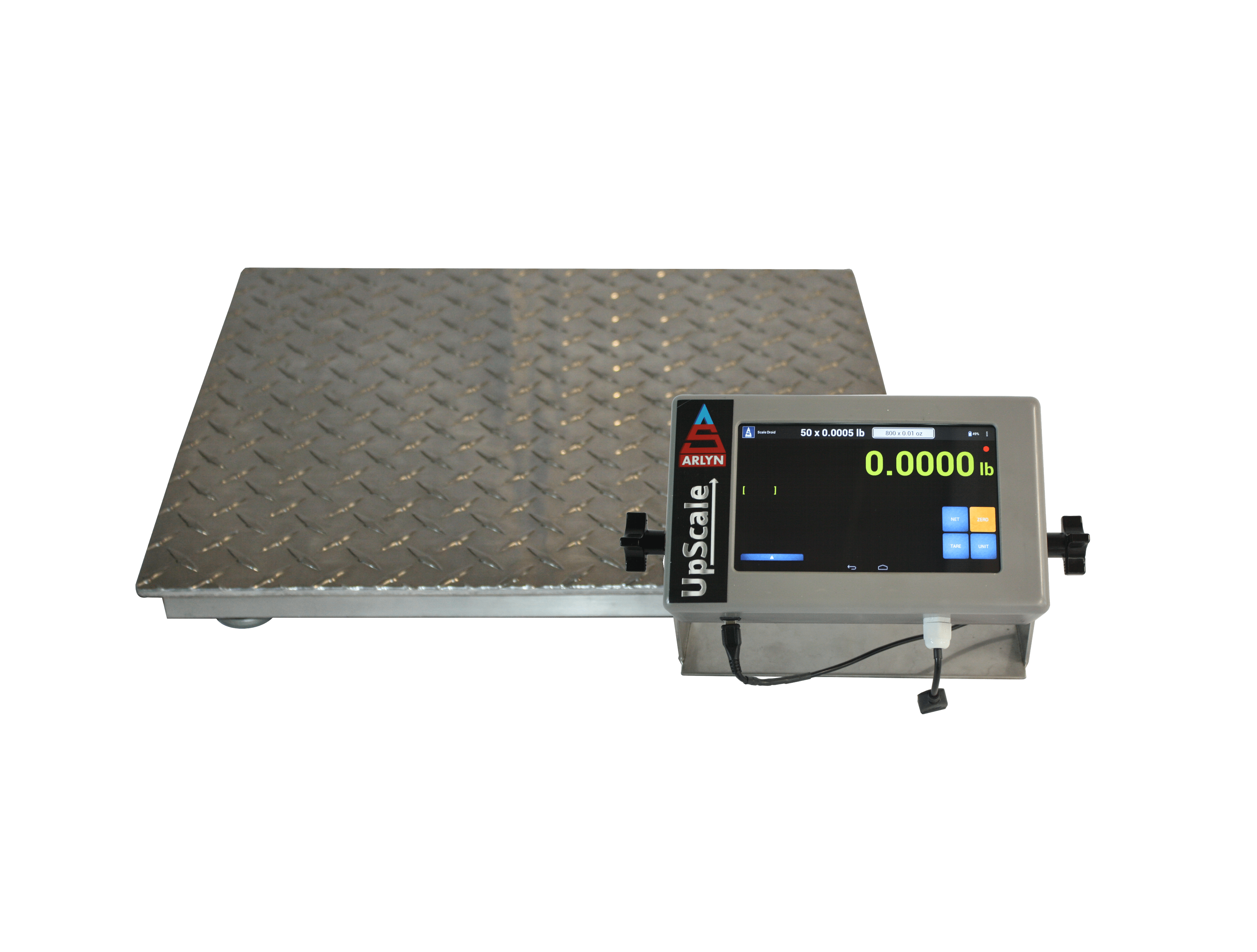
Top Features to Look for in High-Quality Industrial Scales
In the realm of commercial operations, selecting the right scale is vital for ensuring performance and precision. Key functions such as accuracy and precision, along with toughness and develop high quality, play a substantial function in determining the viability of a range for certain applications.
Precision and Accuracy
Making sure the accuracy and accuracy of industrial ranges is vital for reliable procedures throughout numerous sectors. Exact measurements are important in sectors such as manufacturing, logistics, and food handling, where also minor inconsistencies can result in significant economic losses, compromised product high quality, or regulative non-compliance. Premium commercial ranges are made to supply trusted efficiency, making use of innovative modern technology to ensure accurate weight analyses.
The calibration procedure is important in preserving the accuracy of these scales. Routine calibration against accredited referral weights ensures that any type of drift in dimension is remedied, consequently supporting compliance with sector requirements. Furthermore, making use of high-resolution lots cells enhances the scale's capacity to detect minute weight modifications, additionally enhancing its accuracy.

Durability and Build Quality
Toughness and construct quality are critical elements that identify the durability and dependability of industrial ranges popular environments. Industrial ranges are usually subjected to severe conditions, including exposure to dust, wetness, and heavy tons. Therefore, the materials made use of in their construction play an important role in guaranteeing they can hold up against these obstacles.
Premium industrial ranges usually include durable real estates made from materials such as stainless-steel or light weight aluminum, which not just give architectural integrity yet additionally withstand deterioration and wear. Additionally, focus to detail in the design, such as reinforced edges and shock-absorbent feet, can improve toughness and secure delicate parts from damages.
Additionally, high-grade parts, including tons cells and digital parts, add to the overall develop quality. These components must be developed to tolerate temperature changes and resonances frequently discovered in commercial setups. Guaranteeing correct access defense (IP ranking) is additionally crucial, as it suggests the scale's ability to stand up to dust and fluid exposure.
Inevitably, picking commercial ranges with superior resilience and construct quality will result in a much more dependable, lasting service that fulfills the strenuous demands of numerous industrial applications.
Load Capacity and Range
When choosing commercial ranges, understanding their load capacity and range is essential for conference specific operational needs. Tons capacity refers to the maximum weight that a scale can precisely gauge, while the range shows the spectrum of weights the range can deal with properly. It is crucial to choose a range that not only meets existing demands however also accommodates potential future demands.
Various industries have distinct weight dimension needs. For example, a manufacturing facility may require scales with the ability of considering heavy equipment parts, while a research laboratory could only need scales for lighter materials. Selecting a scale with a suitable tons ability makes certain accuracy and accuracy, avoiding overwhelming that could lead to tools damages or imprecise analyses.
A range that can measure both light and heavy weights precisely can improve functional efficiency, permitting for functional applications. Investing in ranges with ideal load capacity and range substantially adds to efficiency, conformity with market requirements, and overall operational dependability.
Ease of Usage and Maintenance

In enhancement to user-friendliness, ease of upkeep is an additional critical element to think about. Ranges that are designed with accessible components assist in routine maintenance tasks such as battery, calibration, and cleaning replacement. A modular style can additionally improve these processes, enabling fast repairs and marginal downtime.
Furthermore, the materials used in the building of industrial scales play a significant role in maintenance. Ranges made from durable, corrosion-resistant materials are much easier to tidy and much less vulnerable to damages, which pop over here prolongs their life expectancy and reduces overall operational prices.
Normal maintenance timetables, led by the supplier's suggestions, are necessary for ensuring optimum performance. By prioritizing simplicity of use and maintenance, services can make sure that their commercial scales stay effective, reputable, and reliable tools in their operations. This causes enhanced productivity and a much more effective workflow.
Connection and Assimilation Choices
Incorporating commercial ranges right into existing functional structures is considerably improved by robust connectivity alternatives. High-quality industrial scales must provide numerous connection methods, including USB, Ethernet, and wireless options such as Wi-Fi or Bluetooth. These attributes promote smooth data transfer to central data sources, ERP systems, or cloud platforms, making it possible for real-time monitoring and coverage.
Additionally, advanced assimilation alternatives permit compatibility with existing devices, such as printers or barcode scanners, simplifying processes and boosting operations performance. Scales that support industry-standard procedures, such as Modbus or RS-232, can easily communicate with different tools and systems, making certain a natural functional atmosphere.
An additional necessary aspect check this is the ability to incorporate with software services that examine and picture information - Industrial Scales. Scales geared up with APIs or software application growth packages (SDKs) provide services the adaptability to customize performances customized to their specific demands
Finally, taking into consideration future scalability is important; choosing scales that can adapt to developing technological advancements ensures lasting worth and reduces the need for expensive substitutes. In summary, examining connection and assimilation options is crucial when picking top notch commercial scales that will enhance functional effectiveness and information administration.
Conclusion
In conclusion, choosing top notch industrial scales demands mindful consideration of several crucial functions. Industrial Scales. Focusing on these features eventually leads to improved productivity and long-term value in commercial applications, reinforcing the importance of notified decision-making in range choice.
In the realm of industrial operations, choosing the right scale is essential for guaranteeing efficiency and accuracy.Ensuring the precision and accuracy of industrial ranges is vital for reliable procedures throughout various industries. Tons ability refers to the maximum weight that a scale this can precisely determine, while the array suggests the spectrum of weights the range can handle successfully. A manufacturing facility may need ranges qualified of weighing hefty machinery components, while a research laboratory might just require scales for lighter materials. By prioritizing ease of usage and upkeep, companies can make sure that their commercial ranges stay reliable, trusted, and reliable tools in their operations.